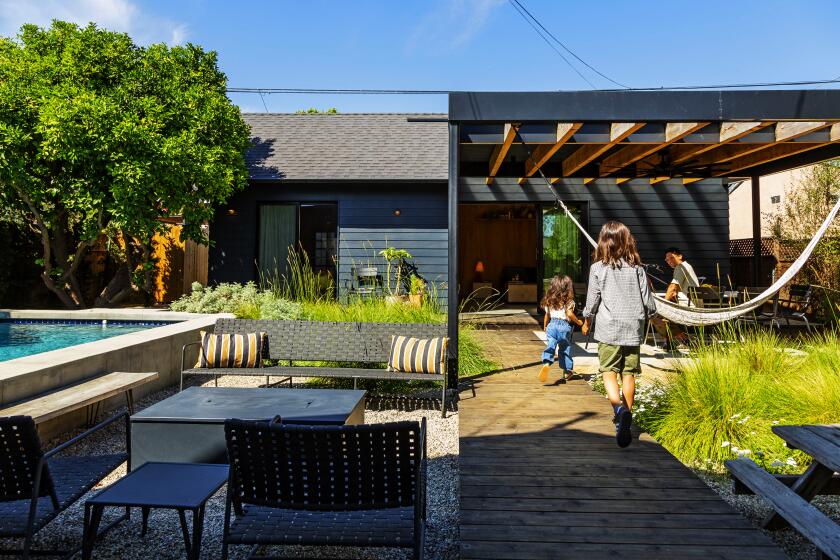Plan for Goode House Perils Its Significance, 2 Attorneys Tell City
- Share via
Two attorneys who specialize in preservation have warned Glendale officials that a plan to protect the city’s best example of Victorian-Queen Anne architecture as the centerpiece for a senior citizens housing project would destroy the building’s historic significance.
The lawyers, who have volunteered to represent the Glendale Historical Society, are expected to ask the city Environmental and Planning Board today to reconsider its May ruling that no environmental impact study is required to convert the 100-year-old E.D. Goode House into office space.
A Glendale developer is proposing to convert the landmark house as part of a senior citizens housing project to be built around it. The historical society is appealing the city’s ruling and has asked for a full environmental impact study of the project.
Attorneys Jack H. Rubens of Los Angeles and William F. Delvac of Culver City told the planning board last week that any reconstruction of the interior of the Goode House may render it ineligible for inclusion on the National Register of Historic Places.
David L. Smith, representing the historical society’s Preservation Action Task Force, also criticized the proposed horseshoe-shaped apartment development to be built around the house. Smith said the design and proximity of the new buildings would damage the historic value of the Goode House.
Smith also called for an environmental study of the project as a whole.
The hearing is scheduled to continue at 3 p.m. today in Room 106, Municipal Services Building, 633 E. Broadway. Joe Ayvazi of the Cedar Broadway Partnership of Glendale is seeking to build 40 small apartment units around the historic house at 119 N. Cedar St.
The two-story house, the only example of Queen Anne-Eastlake architecture remaining on its original site in the city, is vacant and has been threatened with demolition for years. It once was the home of Edgar D. Goode, called the “father of Glendale” because he led the petition drive that resulted in the city’s incorporation in 1906.
Threats that the house would be demolished led to the creation of the city’s Historical Preservation Commission in 1985. The commission in June approved the conversion proposal, which is scheduled to be brought before the Glendale City Council on July 19.
Ayvazi plans to convert the house into office space for his real estate company and other light-use commercial businesses.
Rubens and Delvac have represented developers and advised in certification of rehabilitation projects throughout Southern California.
Times staff writer Doug Smith also contributed to this story.
More to Read
Sign up for Essential California
The most important California stories and recommendations in your inbox every morning.
You may occasionally receive promotional content from the Los Angeles Times.










